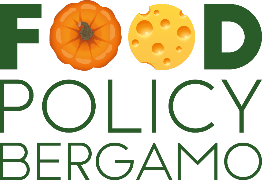Educational action from an early age is fundamental for the formation of the personality and the cultural and human maturation of the individual, including in the field of food. It is precisely with this in mind that it is necessary to foster the implementation and dissemination of educational initiatives in this area, in order to contribute to the spread of healthy and sustainable eating styles, oriented towards the consumption of local, seasonal, predominantly vegetable foods, produced with respect for the environment and people, and linked to the cultural and culinary traditions of the territory. The aim of the pilot action financed by the Food Trails project, called The Good Canteen, is to promote sustainable consumption and greater awareness of food, agriculture and the territory, facilitating the transition to healthy and sustainable diets inspired by the “One Health” concept. The project will involve primary school pupils, parents and teachers in a series of activities aimed at training, raising awareness and educating on responsible consumption of healthy, safe, culturally appropriate, sustainable food, produced and distributed with respect for human rights and the environment. Furthermore, the project intends to foster the creation of a school food environment that facilitates the transition to healthy and sustainable diets. Central to this objective is the reworking of canteen menus with a view to environmental and nutritional sustainability, characterised by a lower presence of animal proteins, especially red meat, in favour of vegetable ones, favouring zero km and short supply chains. Another crucial aspect concerns the identification and dissemination of practices and good practices to reduce food waste and refuse. For the first year, more than 50 classes with a total of over 1,000 pupils and 30 teachers took part in the project.
Goals
MACRO
Promoting a conscious and balanced diet, facilitating the transition to healthy and sustainable regimes inspired by the ‘One Health’ concept.
MICRO
- Development of a Food Policy strategy for the city of Bergamo.
- Educating and raising awareness on healthy and sustainable eating and global citizenship.
- Improving the wholesomeness and sustainability of school canteen menus.
Actions
- Analysis of the Bergamo food system in its main components and elements of economic, ecological and socio-cultural context as a cognitive basis for the definition of policies, projects and actions to promote the sustainability and resilience of the food system.
- Food education activities to train, raise awareness and educate responsible consumption of healthy, safe, culturally appropriate, sustainable food, produced and distributed with respect for human rights and the environment.
- Primary school pupils
- Teachers
- Parents and families
- Interventions in the school food environment for greater healthiness and sustainability.
- Introduction of new recipes based on ingredients of vegetable origin (legumes, vegetables and cereals) to replace foods of animal origin, especially red meat.
- Identification and dissemination of practices and good practices to reduce food waste and refuse.
- Technical training of kitchen staff in the preparation of vegetable dishes.
- Initiation of experiments to increase food from short supply chain and organic systems.
- Improving the nutritional quality of snacks eaten at school.
Timeline
Preliminary phase (March 2022 to September 2022)
- Identification of pilot schools
- Co-design of action plan
Operational phase (September 2022 to June 2023)
- Professional training of cooks and wait staff SerCar
- Co-creation of new recipes
- Gastronomic open days for parents and teachers
- Cooking courses and workshops for pupils
- Cooking courses and workshops for parents and canteen committees
Analysis of the urban food system
Any measure that intends to be structurally effective with respect to a given state of affairs cannot avoid first providing a framework that defines its contours. In order to define the contents of Bergamo’s Food Policy perspective, an analysis was thus carried out of the various ways in which food intertwines the life of the city. The analysis focused on the food cycle and its relations with the city’s society, economy and environment, with a look at articulations on a broader scale. This choice stems from the fact that the issues at stake are many and are articulated and interconnected at different governmental levels. For this reason, several themes were analysed by extending the field of investigation beyond the municipal administrative perimeter, in order to understand and show the relationships between the city and its broader contexts. The components considered are production, processing, logistics, distribution, consumption, food surplus and waste. Contextual elements concern environmental impacts, water use, agricultural land evolution and land consumption, climate-changing gas emissions. Everything is even declined in a demographic and ethnographic sense, indicating an analysis that does not just collect raw data, but distils its concrete implications on the social level. The report ‘Bergamo’s food system: issues, policies, projects and actors’ thus gathers quantitative and qualitative data and information on the most relevant aspects of the city’s food system. The thirteen chapters of the volume deal with the main components of Bergamo’s food system and the most important elements of the socio-economic and environmental context within which this system develops. The report is completed by a synoptic overview of the main experiences and policies underway, more than 100, and of the subjects active in the city, more than 60. The work constitutes a fundamental element in the process of constituting Bergamo’s Food Policy in that the information it contains is designed to be used at the service of all the processes of constructing the policy and its implementation and enforcement. The basic idea is to provide elements of knowledge that may be useful not only and not so much to those who operate or are interested in single dimensions but, above all, to those who wish to grasp the interrelations between them. This is done in order to integrate and direct the projects, plans and programmes of the various actors involved on the issue, and to systemise their policies that intersect with food issues from different points of view: territory, welfare, education, environment, climate, soil, welfare, international relations, economy, agriculture, local supply chains, research, conscious consumption, distribution, etc. This report was funded by the European project Food Trails Building pathways towards FOOD 2030-led food policies, aimed at fostering innovation in food and supporting the development of urban food policies.

